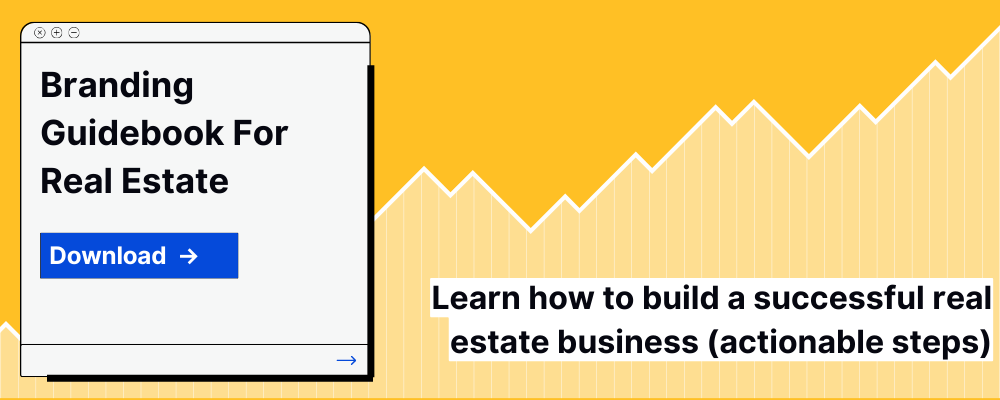Real Estate Social Media Management: The Complete Guide

Real Estate Social Media Management: The Complete Guide

Imagine this: Alex, a budding real estate agent, wants to connect with a broader audience and grow her business. She knows she needs to utilize the potential of social media platforms, but she’s feeling a bit overwhelmed.
Which platform should I use? What kind of content will engage my audience? How can I stand out from the competition?
You’re at the right place if you can relate to Alex’s questions and concerns. Whether you’re a seasoned agent, an entrepreneur who has just started, or a curious real estate enthusiast looking to understand the industry better, we’ve got you covered.
In this guide, we’ll discuss everything about real estate social media management – what it is, why it is important, how to plan your social media marketing strategy, what strategies to use and a few post ideas to get you started.
What is social media management?
Social media management refers to creating, scheduling, analyzing, and engaging with content on various social media platforms.
Think of social media management as your tool to ‘show and tell’ your brand story, connect with your community, and, most importantly, turn your online followers into actual buyers, sellers, or renters.
For instance, showcasing a beautiful property is part of the job, but so is highlighting the unique features of that property, sharing stories of the happy families that live there, and addressing queries and concerns of prospective clients swiftly and professionally.
When you use social media platforms like Facebook, Instagram, Twitter, or LinkedIn to connect with your audience or customers, you must understand that it’s not just about posting pretty property pictures. There are various aspects you need to take care of.
- Creating Content
- Scheduling
- Engagement
- Analytics
- Customer Service
- Building Relationships
The combination of all of the above is what makes up social media management.
Want to effectively manage your social media marketing campaigns and generate leads? Contact our experts and get a free quote for real estate social media marketing services.
What is the role of social media marketing in real estate?
The NAR did a technology survey in 2022 and concluded that real estate agents found social media to be a more powerful tool than MLS to generate quality leads.
It’s not hard to guess why. 47% of people begin their house hunt online. And overall, 96% of people eventually find homes online.
Social media is how you reach potential leads and get a major chunk of your clients. Let’s see how social media management can play a role in building your real estate business.
1. Brand Building and Awareness:
Think of social media as the modern gathering spot where everyone connects. Social media platforms allow real estate agents and agencies to build brands and increase visibility.
When you post engaging content consistently, it helps establish your expertise and credibility in the industry.
For example, you could regularly share posts about local market trends, tips for home buyers/sellers, showcase successful property transactions, and even memes to connect with your audience.
2. Lead Generation
When you engage with your audience on platforms like Facebook, Twitter, and Instagram, you build relationships and trust.
Redfin consistently offers invaluable insights into the housing market, sparking engaging conversations among its followers. Recently, they shared compelling charts presenting national home sale prices and listings on a downward trend.
You establish yourself as a trusted real estate advisor for your audience by providing valuable social media content.
Your presence at the top of their minds becomes a natural inclination, driving them towards your services for all their real estate endeavors.
The more followers interact with the brand, the more likely they become loyal customers or even brand advocates who refer new leads.
You can leverage targeted advertising to reach specific demographics, increasing the chances of converting leads.
For instance, you might run a Facebook ad campaign targeting first-time homebuyers in a specific city or neighborhood.
3. Property Promotion
Imagine posting stunning images and virtual tours of homes on Facebook, Instagram, or YouTube. This allows you to widen your audience and attract interested clients.
For instance, you could post a captivating video tour of a luxurious penthouse, highlighting its panoramic views and modern amenities.
You can effectively market properties and increase the chances of successful sales by leveraging social media’s wide reach.
In 2020, a bored real estate enthusiast started his Instagram account called Zillow Gone Wild, where he shares the whackiest, strangest, most innovative, and creative properties he finds on Zillow and shares them.
In a conversation with Reader’s Digest, he said he’d started it as a pastime, leading to a massive following of 1.7M.
He has also contributed to sales and says that he enjoys it when homes go to “pending” soon after he posts about them on his account. That’s the power of social media!
4. Customer Engagement
Social media allows you to interact with your audience in real-time. Responding promptly to comments, direct messages, and inquiries helps build trust and rapport with potential clients.
For example, replying to a buyer’s query about a property’s features or a seller’s request for a market analysis demonstrates genuine interest.
You could use Twitter to host live Q&A sessions about the home-buying process or investment opportunities.
5. Market Research
Real estate professionals often use social media as a tool for market research. You can monitor conversations, trends, and sentiments about the local housing market.
It’s key to understanding your audience and staying ahead of the game. You gain valuable insights into what buyers and sellers want by monitoring trends, demographics, and preferences on platforms like Facebook, Instagram, and Twitter.
For instance, you can use social media analytics to discover that young families seek homes with spacious yards in a particular area.
With this knowledge, you can customize your marketing strategies to meet these demands and connect with potential clients more effectively.
6. Networking and Partnerships
Social media lets you connect with other industry stakeholders, such as mortgage brokers, contractors, and home stagers.
You can showcase your expertise and build trust among your audience by maintaining an active and engaging presence on platforms like Facebook, LinkedIn, and Instagram.
As a real estate agent, you could collaborate with a local interior designer or an influencer to create joint content showcasing your latest project, thus expanding your reach and attracting more potential buyers.
Here, Wynd Miami collaborated with Ryan Serhant, one of the top real estate influencers, to showcase their Luxury rentals. It also helped them reach out to Ryan Serhant’s followers, increasing their chances of generating quality leads.
7. Crisis Management
When unexpected situations arise, like negative reviews, property disputes, or even a PR crisis, social media managers handle the situation with tact and empathy.
They respond promptly, address concerns, and provide helpful solutions.
For example, if a dissatisfied client posts a complaint about a delayed property handover, a skilled social media manager will respond publicly, apologizing for the inconvenience, and promptly reach out privately to resolve the issue.
They can use their platforms to address concerns, clarify information, and maintain transparency with their audience.
This is the perfect example of how Zillow’s social media manager managed to satisfy a user who had trouble getting a response via email, saving their reputation.
8. Analytics and Performance Tracking
Social media platforms provide valuable analytics and insights on the performance of posts and campaigns. It means keeping a close eye on how your social media efforts are working to achieve your goals.
You can track the leads generated from Facebook, Instagram, or LinkedIn.
When you analyze which posts get the most engagement, you better understand what content resonates with your audience. It helps you tailor your future posts for better results.
You can also identify areas of improvement and refine your strategy for greater success.
How to plan a real estate social media management strategy?
Most often, brands fail to leverage social media because they do not have a solid strategy. Social media management requires you to draw up a detailed plan of action and follow it consistently for a minimum of 6 to 12 months to start seeing significant results.
Here’s how to plan a social media management strategy for your business.
Step 1: Identify your target audience
To create an effective real estate social media management strategy, it’s important to know who you’re targeting.
Consider the demographics, interests, and preferences of your ideal clients. Are you focusing on young professionals looking for condos or families searching for suburban homes?
Understanding your audience will help you create content that resonates with them.
For instance, if you’re targeting retirees seeking vacation properties, you might use Facebook to share articles about the best retirement destinations or create visually appealing posts showcasing relaxing getaways.
Step 2: Set clear goals
Define specific and measurable goals for your social media marketing efforts. Are you aiming to increase website traffic, generate leads, or build brand awareness?
Setting clear objectives will guide your content creation and campaign strategies.
Say, your goal is to generate leads; you could run a Facebook lead generation ad campaign that offers a free guide on “Tips for First-Time Homebuyers.”
Or, you could run targeted ads with compelling property listings and lead capture forms.
Step 3: Conduct competitor analysis
Research your competitors’ social media presence. Analyze what type of content they share, how often they post, and their engagement levels.
Use this insight to differentiate your strategy and find unique ways to appeal to your audience.
This research will provide valuable insights into your industry’s social media landscape and help you identify gaps in their strategies.
If you find that your competitors primarily post property listings, you could differentiate yourself by focusing on educational content like “Home Buying 101” videos on YouTube.
Step 4: Choose the right platform
Not every social media platform will be suitable for your real estate business. Focus on platforms where your target audience is most active.
Facebook and Instagram are popular for sharing stunning property images and videos, but you can consider using LinkedIn for professional networking or YouTube for showcasing property tours.
Step 5: Develop a content strategy
Consistent and engaging content is the backbone of a successful social media marketing strategy.
Develop a content strategy that caters to your audience’s interests and preferences while aligning with your goals. Balance promotional content with valuable and engaging posts.
Share property listings, client testimonials, neighborhood spotlights, and local market updates. Visual content, such as high-quality images and videos, works exceptionally well in the real estate industry.
You could also share behind-the-scenes content to humanize your brand, showcasing your team’s expertise and passion for real estate.
Mix up your content formats to keep your audience engaged. Use images and videos to showcase properties and create virtual tours. Utilize customer testimonials to build trust and credibility. Share blog posts or infographics to provide valuable information.
Step 6: Utilize visuals
Real estate is a visual business, so make the most of images and videos to captivate your audience.
Use professional photos and videos to showcase properties, virtual tours, and behind-the-scenes content.
You could create a YouTube video highlighting the top neighborhoods in your city, featuring drone footage of local attractions and amenities.
Step 7: Expand your reach with paid advertising
Combine organic lead generation strategies along with PPC advertising to boost sales and increase your customer base.
Make the most of paid advertising by showcasing your best property listings with captivating visuals and compelling descriptions.
Highlight unique features and use clear call-to-action to entice potential buyers or renters. You can use ads to boost important announcements such as promotions, open houses, or market updates, creating a sense of urgency and encouraging action.
Optimize your ads by conducting A/B testing to identify what resonates best with your audience.
Set a suitable budget, monitor performance metrics, and adjust as needed to achieve the best return on investment. And don’t forget to take advantage of retargeting ads to reconnect with those who have previously shown interest in your business.
Further resources on real estate PPC:
- Best real estate pay-per-click (PPC) services
- How much does real estate PPC cost in 2023?
- Complete guide to optimizing your real estate property listing
Step 8: Track and analyze performance
Measure the effectiveness of your social media strategy using platform analytics and other tracking tools.
Monitor key metrics like engagement, reach, click-through rates, and lead conversions. Use the data to refine your approach and identify areas for improvement.
If you find that LinkedIn generates more qualified leads compared to Instagram, consider reallocating your resources accordingly.
Or, if you notice that posts featuring virtual tours receive more engagement, consider incorporating them more often into your strategy. Be open to adapting your approach based on the insights you gain.

Real estate social media marketing strategies to drive conversions
A few years ago, still images were the main element of social media marketing. In the last couple of years, videos have taken over. And now, it’s the age of reels and TikTok.
As a real estate agent, you must adapt to the evolving social media landscape and strategize accordingly.
Let’s discuss some of the most relevant social media marketing strategies sure to generate leads and drive conversions.
1. Visual appeal
Real estate is a visual industry, so prioritize high-quality photos and videos. Use professional photography to showcase properties in the best light.
Consider creating virtual tours or 360-degree images to provide an immersive experience for potential buyers. If you’re a beginner, use tools to help create 360-degree images, videos, floor plans, and dollhouses.
Share a stunning photo or video of a property with a compelling caption highlighting its unique features, such as a spacious backyard or a modern kitchen, to capture your audience’s attention.
Check out our ultimate guide to real estate social marketing tools (free and paid) — the ONLY list you need.
2. Consistent branding
It takes a second for us to recognize the Apple logo or the simple ‘bull’s eye’ Target logo. No strategy can replace the power of strong and consistent branding for your real estate brand.
Maintain a consistent brand image across all your social media platforms. Use the same profile picture, cover photo, and color scheme to create a recognizable brand identity.
Consistency helps build trust and familiarity with your audience.
You can use your real estate agency’s logo as the profile picture on all social media accounts and incorporate your brand’s color scheme into post graphics and headers to reinforce brand recognition.
3. Engage & Interact
Imagine a potential buyer commenting on one of your posts, expressing interest in a property. Respond with a warm and friendly message, offering to provide more information or even arrange a personalized viewing.
When you acknowledge and address inquiries, you show genuine interest in helping them find their dream home.
This level of responsiveness builds trust, making potential buyers more comfortable with your brand and more likely to consider your real estate offerings seriously.
Every interaction matters, whether it’s a simple thank-you response or providing detailed information.
Engaging with your audience shows that you value them and are committed to meeting their needs, improving your real estate brand’s reputation, and driving higher engagement levels.
Further resources on real estate marketing:
4. Use relevant hashtags
Hashtags are a great way to increase your posts’ visibility and reach audiences that might not follow you or know you.
Research and use relevant real estate hashtags that potential buyers might search for to expand your reach.
Blend well-known real estate hashtags like #DreamHome and #HouseHunting with location-specific tags like #NYCRealEstate or #MiamiHomes.
A clever combination helps your posts reach a broader audience interested in real estate and those specifically looking for properties in your area.
You increase the chances of attracting local prospects and engaging with individuals more likely to act on their interest in the properties you represent.
5. Build social proof with client testimonials
Sharing positive reviews and client testimonials on social media is how you can build trust with your audience and showcase your track record of success.
Say, one of your clients expresses delight with your services after purchasing their dream home through your agency. Feature their testimonial alongside their picture and an image of the property.
This visual representation adds authenticity to the testimonial and highlights the property’s unique features.
When prospects see real people vouching for your brand, it instills confidence in your expertise and services.
They are more likely to view you as a reliable real estate partner, prompting them to explore your offerings further and consider your agency for their property needs.
6. Deliver value with educational content
Provide value to your audience by sharing informative content related to the real estate industry. Tips for first-time buyers, an infographic on current real estate prices, and market trend analysis can all be beneficial.
For example, you can offer a comprehensive guide on “Essential Home Staging Tips to Attract Buyers” through an engaging video.
This content can demonstrate practical techniques for maximizing a property’s appeal, helping sellers prepare their homes for successful showings.
By presenting such valuable insights, you position your brand as a knowledgeable resource that genuinely cares about its clients’ success.
Educational content increases engagement, encourages shares, and attracts potential buyers seeking guidance and expertise.
Your real estate brand becomes synonymous with trust and reliability as you consistently provide valuable tips, advice, and market insights.
7. Collaborate with influencers
Partner with local influencers or industry experts with a significant following in your target market.
You can collaborate with a well-known interior designer or home decor influencer to host a virtual tour of a beautifully staged property.
This collaboration showcases the property in the best light and leverages the influencer’s credibility to boost your brand’s reputation.
When you build authentic connections with influencers, you gain access to their engaged audience, introducing your real estate offerings to new and relevant demographics.
Social media post ideas for real estate businesses
1. Virtual Tour of properties
Create an interactive 360 degree virtual tour of your property and showcase the layout and rooms in an appealing manner.
You can use videos or live streams to give viewers a real-time experience and answer their questions instantly.
2. Property listings
Give them insights about your properties using photos, videos, and info-graphics. Share unique selling points, amenities, and key features of the properties to attract buyers.
3. Testimonials
Display and share your customer testimonials on your website, and social media platforms. It will help build trust in your target audience.
4. Neighborhood spotlights
Highlight the attractions in the neighborhood area, like schools, lifestyle aspects, amenities, etc., with their photos, videos, and interesting facts about them.
Make your potential customers realize that you care for all their needs.
5. Market updates and tips for property buying/selling
Share market updates with the latest trends, forecasts, statistics, etc., to inform your audience of market conditions. Offer them financing options, home inspection tips, preparing the property for sale, etc.
6. Show the property transformations
Present your content with before and after transformation photos of properties to inform them of improvements that changed the property value.
7. Post seasonal content
Create engaging posts on seasonal topics or holidays. It will keep the audience informed and interested.
For example, talk about holiday home decorating ideas, give tips about winterizing homes, or inform them about summer outdoor activities nearby.
Related resources: Find holiday marketing ideas for your real estate brand
8. Share success stories
Success stories leave a great impact on the audience. Share your customer’s success stories on how you helped them find their dream home or sell a home quickly.
9. Interactive sessions and Q&A
Engage and interact with your target audience through hosting live sessions and leading Q&A forum.
Solve their queries on the real estate process, specific properties, market conditions, financial roadblocks, etc.
10. Polls, Quiz, and Surveys
Create polls on social media platforms, run quizzes, and conduct surveys with them about real estate-related topics. Know their opinions, likes/dislikes, and preferences about properties.
How UpInFifty can help you run a successful social media campaign
Handling several social media accounts can be overwhelming, and keeping up with trends is challenging. That’s where UpInFifty comes to the rescue!
Our expert social media management services are designed to help real estate agents like you navigate the digital landscape, build a thriving online community, and ultimately drive more leads and sales.
At UpInFifty, we:
- Customize social media strategies that align perfectly with your brand.
- Create high-quality and relevant content that resonates with your audience.
- Schedule your content to reach the right audience at the right time.
- Build a strong social media community.
- Provide detailed analytics and performance reports that clearly understand how your social media campaign is performing.
- Save you time and cost.
To know more about our services, you can contact us here!

FAQs
Does social media work for real estate agents?
Yes, social media works for real estate agents! It’s a powerful tool for connecting with potential buyers and sellers, building your brand, and effectively showcasing properties.
Platforms like Facebook, Instagram, and LinkedIn allow you to reach a broader audience, engage with followers, and generate leads.
With compelling content and consistent presence, social media can significantly boost your visibility and success in the competitive real estate market.
Why are Facebook ads important for real estate?
Facebook has roughly 3 billion active users, making it one of the largest social media platforms. It offers a powerful platform to showcase properties and build brand awareness.
With Facebook ads, you can target specific demographics, interests, and even locations to show your ads to the right people at the right time.
Precision targeting increases the chances of finding serious buyers or sellers genuinely interested in what you offer.
Also, Facebook’s visual nature lets you showcase your properties through eye-catching images and videos. It’s like giving virtual tours to your audience, creating a more engaging experience.
The best part is that Facebook ads are cost-effective. You can set your budget and reach a broad audience without breaking the bank.





